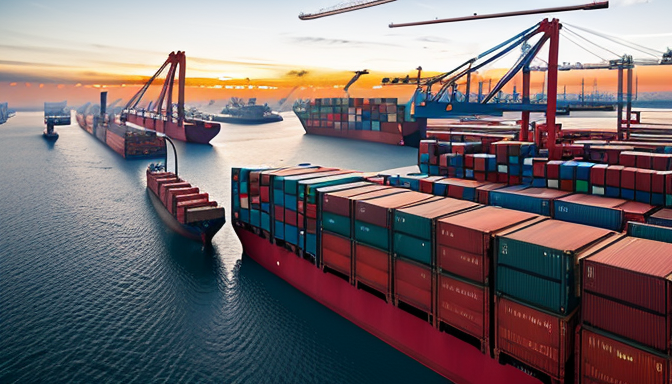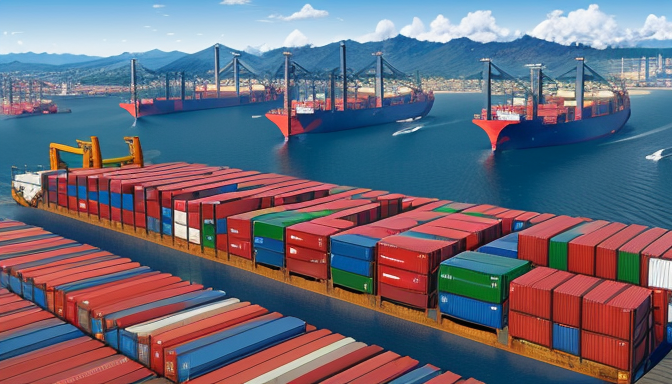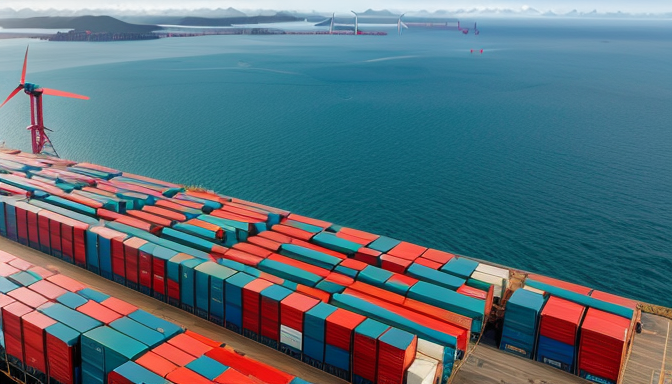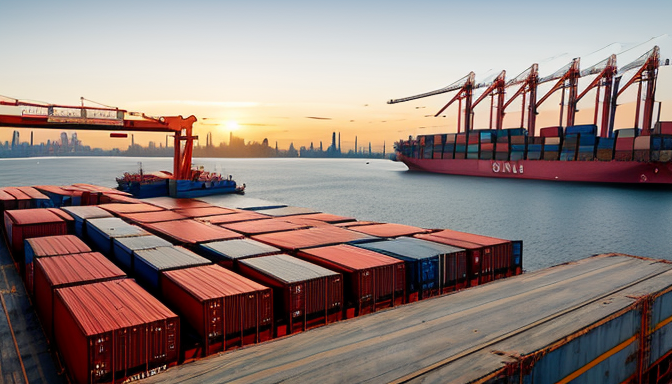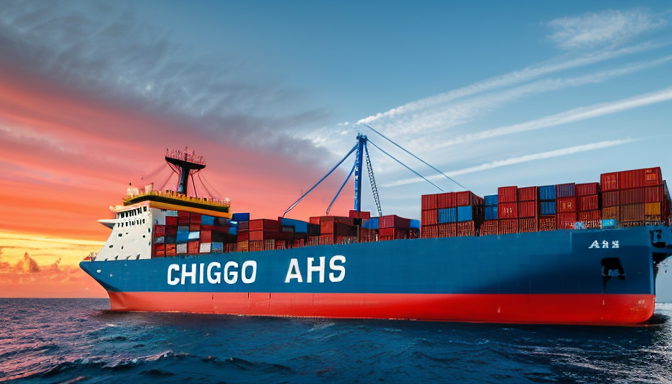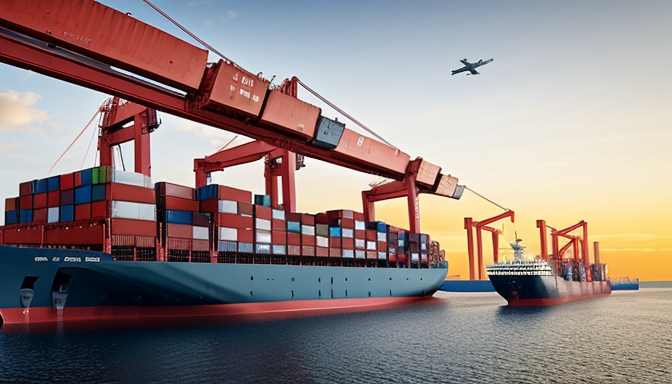Navigating the Future of Maritime Logistics: What’s Next?
The maritime logistics industry is on the brink of a transformational shift, driven by rapid advancements in technology and changing global dynamics. As we look ahead, it’s essential to understand the global shipping trends that are shaping the future. With the rise of e-commerce, the demand for faster and more efficient shipping solutions has skyrocketed. This has led to a surge in the use of advanced container systems that can optimize space and enhance cargo security.
Moreover, the integration of port technology is revolutionizing how goods are handled at terminals. Automated systems and AI-driven analytics are streamlining operations, reducing turnaround times, and minimizing human error. Imagine a world where ships are unloaded and loaded with pinpoint precision, thanks to smart technology! This not only improves efficiency but also significantly cuts costs, making maritime logistics more competitive.
However, the journey towards a seamless maritime future is not without its challenges. Issues such as regulatory compliance and environmental sustainability are at the forefront of discussions. As the industry embraces innovation, it must also tackle the pressing need for a greener approach to logistics. Balancing technological advancements with ecological responsibility will be crucial for long-term success.
In conclusion, the future of maritime logistics is bright, filled with opportunities and challenges. By staying ahead of emerging trends and embracing new technologies, stakeholders can navigate this evolving landscape successfully. Are you ready to set sail into this new era?
Emerging Technologies in Maritime Logistics
As we sail into the future of maritime logistics, it’s hard not to be excited about the transformative power of emerging technologies. Imagine a world where artificial intelligence (AI) predicts shipping delays before they happen, or where blockchain ensures every transaction is secure and transparent. These innovations are not just dreams; they are reshaping the global shipping landscape right now.
Take, for example, the integration of Internet of Things (IoT) devices in container systems. These smart containers can communicate their location and condition in real-time, allowing shipping companies to track their cargo with pinpoint accuracy. This level of visibility is crucial in a world where delays can cost millions. Furthermore, ports are becoming increasingly tech-savvy, utilizing advanced automation and AI to optimize loading and unloading processes, which significantly reduces turnaround times.
In addition to efficiency, these technologies are also addressing environmental concerns. With the maritime industry under pressure to reduce its carbon footprint, innovations like green shipping technologies are gaining traction. For instance, the use of alternative fuels and energy-efficient vessels is becoming more common, paving the way for a more sustainable future.
To summarize, the maritime logistics sector is on the brink of a significant technological revolution. As these advancements continue to emerge, they promise not only to enhance operational efficiency but also to create a more transparent and environmentally friendly shipping ecosystem. The question remains: are we ready to embrace these changes?
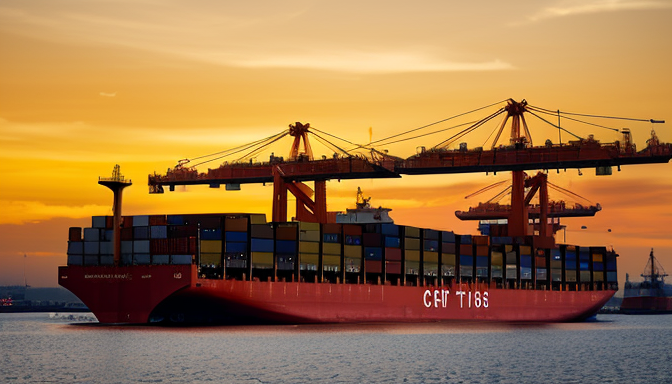
Challenges Facing Maritime Logistics
As the maritime logistics industry sails forward, it encounters a myriad of challenges that can make or break its journey. One of the most pressing issues is the regulatory hurdles that vary from region to region. Navigating through these regulations can feel like trying to find a needle in a haystack, especially when each country has its own set of rules governing shipping and trade. With the rise of global shipping trends, staying compliant has never been more critical yet complicated.
Another significant challenge is the environmental concerns that loom large over the industry. With increasing pressure to reduce carbon emissions and adopt sustainable practices, shipping companies are scrambling to implement greener technologies. This transition isn’t just a walk in the park; it requires substantial investment in new vessels and retrofitting existing ones. The shift to eco-friendly practices is not just a trend; it’s a necessity to ensure the longevity of our planet and the industry itself.
Moreover, the maritime logistics sector is grappling with a workforce shortage. As experienced professionals retire and fewer young individuals enter the field, the industry faces a talent gap that threatens operational efficiency. Companies are now in a race against time to attract new talent while also investing in training programs to upskill their current workforce. Without addressing this issue, the future of maritime logistics could be at risk.
To tackle these challenges, stakeholders must work collaboratively to innovate and adapt. By embracing technology, sharing best practices, and investing in human capital, the maritime logistics industry can not only overcome these hurdles but also thrive in an ever-evolving landscape.
Frequently Asked Questions
- What are the key technologies shaping maritime logistics?
Innovative technologies like AI, blockchain, and the Internet of Things (IoT) are at the forefront, enhancing operational efficiency, improving transparency, and ensuring security across supply chains.
- What challenges does the maritime logistics industry face?
The sector is grappling with several challenges, including regulatory hurdles, environmental concerns, and a shortage of skilled workforce. Addressing these issues is crucial for sustainable growth.
- How can technology help overcome maritime logistics challenges?
By leveraging advanced technologies, companies can streamline operations, improve compliance, and reduce environmental impact, paving the way for a more resilient logistics framework.
- Why is transparency important in maritime logistics?
Transparency fosters trust among stakeholders, reduces fraud, and enhances collaboration, ultimately leading to smoother operations and better customer satisfaction.
- What role does sustainability play in the future of maritime logistics?
Sustainability is becoming a priority, as companies seek to minimize their environmental footprint through eco-friendly practices and technologies, ensuring long-term viability in the industry.
